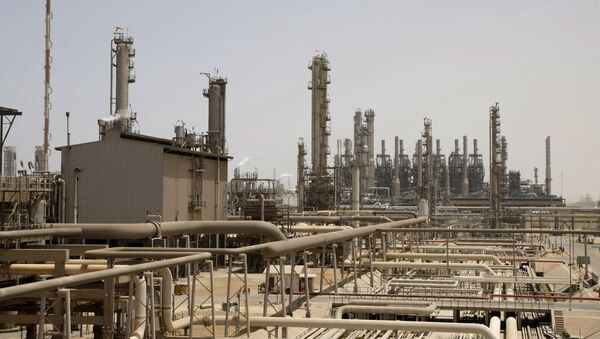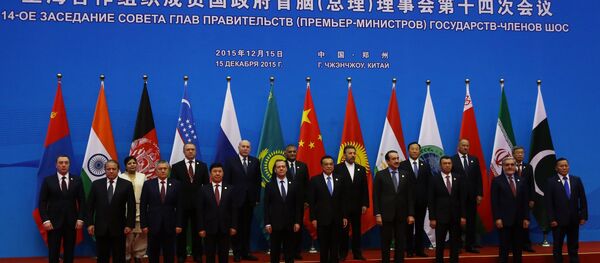MOSCOW (Sputnik) — On February 16, the energy ministers of the three Organization of the Petroleum Exporting Countries (OPEC) met in the Qatari capital of Doha to agree on freezing oil output at January 2016 levels. The agreement aiming to stabilize the volatile oil market is subject to other oil producing countries following suit.
"In such an event we could see an increase in the oil price… but there are a lot of 'ifs' in that line of reasoning," professor of Petroleum and Natural Gas Economics at the University of Wyoming Charles Mason said Friday.
Among them is Iran's recent suggestion it would continue increasing output until pre-sanctions levels. Iran's OPEC representative Mehdi Asali was quoted as saying the day after the Doha deal that it would be "illogical" to ask Tehran to restrain production.
"If Iran increases its production, as it has indicated it would, then the deal won’t amount to much at all", Mason observed.
A lot will depend on Iran’s and OPEC’s further actions, oil and gas expert at Oil & Gas Monitor Alahdal Hussein agreed.
"After the storm passes and the oil industry recover, OPEC members would cut back their production to allocate for Iran's export within the cartel's quota. If that it is to happen, oil prices may rebound to levels around $40-$60 per barrel by the end of the year."
Commenting on media reports on the possible concessions that Iran may be granted in exchange for freezing its output along with other countries, Hussein called any special terms to Iran unlikely.
The expert argued it would be in Iran's own interest to temporarily freeze oil output. In his words, the task of attracting international oil and gas companies to invest in Iran oil industry is difficult to accomplish given the current oversupply of oil and low prices.
According to Venezuela's representatives, the agreement was later supported by Ecuador, Algeria, Nigeria, Oman and Kuwait.
Despite the potential of curbing supplies, Brent crude prices fell by over $1 a barrel to $33.04 and WTI crude dipped below $30 on Friday.





